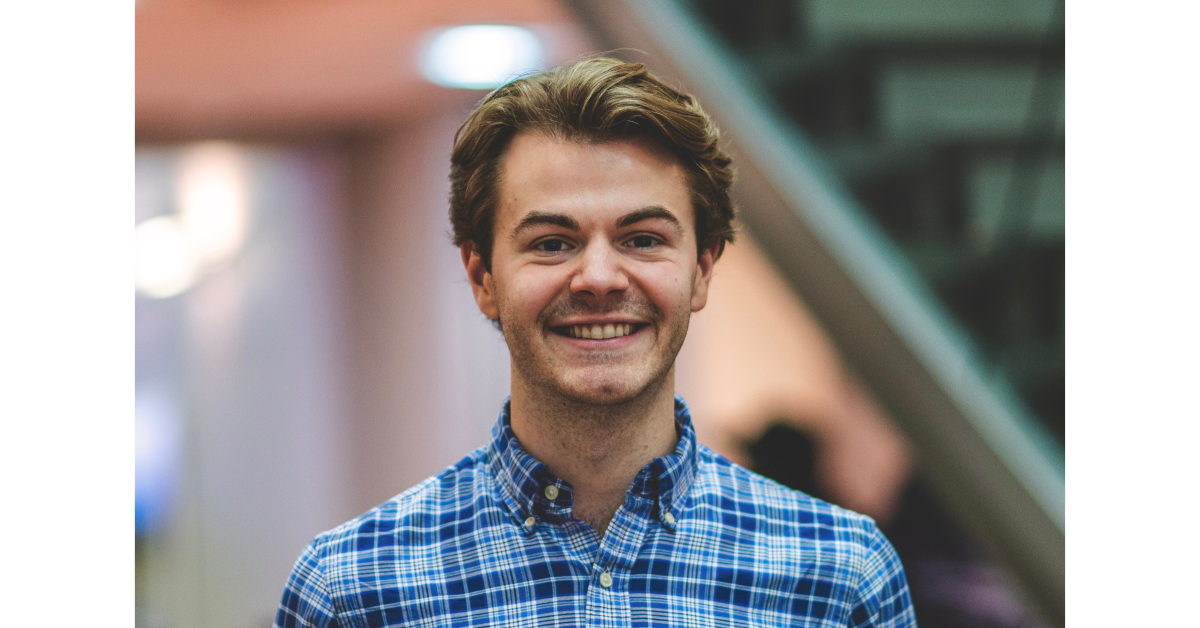Responses were edited for clarity and conciseness.
Give a one-minute elevator pitch on your research focus.
My dissertation research focuses on the criminalization of homelessness and how it has converged with the overdose crisis. In the past several decades, states and municipalities have increasingly adopted policies that criminalize homelessness, policies that can shift the risk environment for people who use drugs and people experiencing homelessness.
What motivated you to focus on the intersection between the homelessness and overdose crises?
I came into the PhD program knowing that I wanted to focus on substance use. I had worked in harm reduction services before entering my PhD, which has continued to drive my research interests. Over the past several years, responding to the overdose crisis has become a national priority, marked by significant investments, but many of these initiatives have largely overlooked the broader social structural determinants of the crisis. One major event that drew my attention was in spring of 2024, with the US Supreme Court ruling in the City of Grants Pass v. Johnson that has afforded jurisdictions greater latitude in criminalizing homelessness.
What’s one major insight you’ve come across in your research?
There was a fascinating qualitative study done in Oregon this past year that focused on the experiences of people who use drugs during the period in which Measure 110, which decriminalized personal possession of small amounts of any drug, was in effect. Participants described how the criminalization of homelessness emerged as a tactic to continue to surveil, stigmatize, displace, and criminalize people who use drugs during this period of intended decriminalization.
You recently published a paper about medical debt and the effects of that onto mental health treatment. What was that process like?
I got interested in medical debt in my first year of the PhD program after reading Your Money or Your Life by historian-physician Dr. Luke Messac, which chronicles the history of medical debt in the US and the aggressive debt collection tactics that health systems in the U.S. have adopted. My first-year psychiatric epidemiology course required an independent project, so I used national survey data from the CDC to examine the prevalence of medical debt among adults with common psychiatric disorders. That project was a steppingstone to other work, including a more recent study with Drs. Catherine Ettman and Kate Miller in the Department of Health Policy and Management, where we found that one in three adults with medical debt reported forgoing mental health care in the subsequent year due to costs. I was able to present our findings at the Academy Health conference in Minneapolis this past June.
What led you to doing a PhD at JHBSPH?
My entry point into public health was from working in harm reduction. I was inspired by the harm reduction movement’s long-standing community-based resistance and resilience in responding to the War on Drugs. I really wanted to continue working in that space, and I thought research was an important tool in advancing policy. I decided to pursue a PhD to become equipped with the tools to undertake rigorous research that could inform a policy change and promote health equity. I chose Hopkins partly largely because of the opportunity to work with my advisor, Dr. Sabriya Linton, but I was also drawn to Baltimore, which has always been an innovative city for public health.
What are your post-graduation plans?
My most immediate goal would be to land a post-doc after graduation and becoming an independent academic researcher.
How do you hope your research will affect future policies around homelessness, medical debt, and overdoses?
I hope it can be used to garner support for policies that make meaningful change with equity at the forefront. Research in public health can’t just be an academic exercise, but instead, should be used to support and inform advocacy efforts for programs and policies that can have a broader impact.
What’s some advice you would give to your younger self after graduating from college?
The most important thing is to do something you’re passionate about, and I can’t understate the importance of being involved in community-based work where you’re not wearing the hat of a researcher. The “boots-on-the-ground” experiences will ground you in reality, fuel your passion, and help you find ways to make a difference.
What’s a standout experience you’ve had so far at JHBSPH?
I took Dr. Lorraine Dean’s class on Power and Privilege in Public Health in the spring of my first year, which was one of the most impactful classes I’ve taken. The course has a service-learning component, where we partnered with the Community Law Center and apply our epidemiologic skills to a project that would support some of the Center’s ongoing advocacy work.
What’s your favorite place to go in Baltimore?
I love to go to the NCR trail in Baltimore County for long runs. It’s flat, shaded, and has virtually no traffic stops, which is a nice contrast from city running. I also play in a soccer league with a bunch of other PhD students in the school, which is a bright spot of each week.
Do you have any book recommendations?
My favorite book I’ve read this year is There’s No Place for Us by Brian Goldstone. He’s an anthropologist and journalist, and the book takes you into the lives of five families in Atlanta that have experienced homelessness at some point or another. My advisor’s work was actually cited in Goldstone’s book. It’s a compelling story that integrates a lot of research and statistics to make a strong argument that people aren’t just falling into homelessness—they’re being pushed by broader structural forces, and it’s a policy choice that we allow this to happen.

